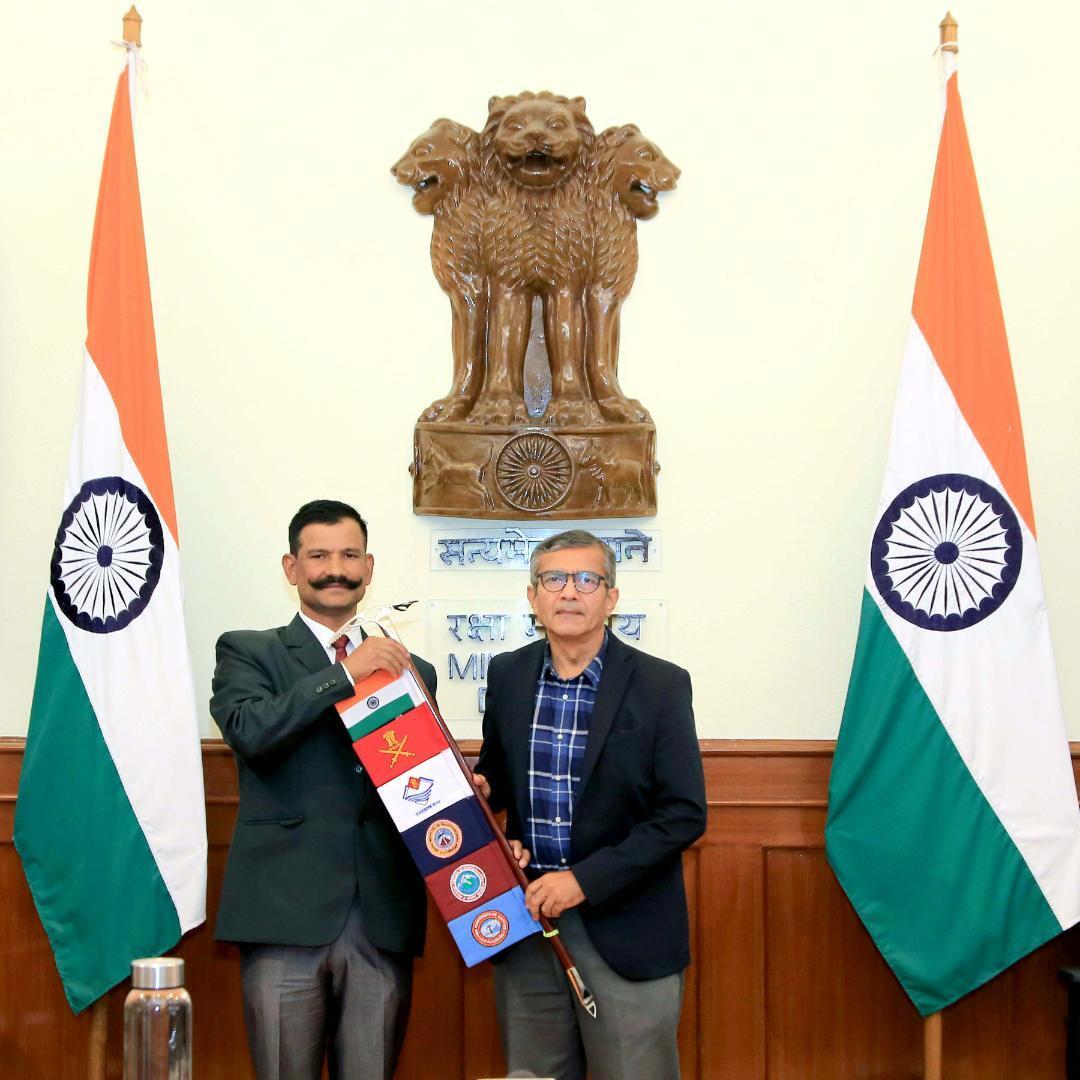
India Flags-in Mount Everest & Kilimanjaro Expeditions
On July 17, 2025, Defence Secretary Rajesh Kumar Singh flagged off two major mountaineering expeditions to Mount Everest and Kilimanjaro, marking a significant milestone in India’s mountaineering history. The expeditions, comprising of experienced mountaineers and adventure seekers, aimed to showcase India’s mountaineering excellence and leadership across land, sea, and air.
The Everest mission marked the 60th anniversary of the Nehru Institute of Mountaineering, a premier mountaineering institute in India. Established in 1965, the institute has produced some of the country’s most renowned mountaineers and has been instrumental in promoting mountaineering as a sport in India.
The Kilimanjaro team, on the other hand, featured Uday Kumar, a Divyangjan climber, who has been inspiring many with his remarkable feats. This expedition was a testament to India’s commitment to inclusivity and accessibility in adventure sports.
The Mount Everest expedition, led by renowned mountaineer and Nehru Institute of Mountaineering’s Director General, Colonel H.S. Chauhan, aimed to summit the world’s highest peak, Mount Everest, via the South Col route. The team consisted of 12 members, including 5 women, who had undergone rigorous training at the Nehru Institute of Mountaineering.
The Kilimanjaro expedition, led by mountaineer and adventurer, Ajay Khanna, aimed to climb Africa’s highest peak, Mount Kilimanjaro, via the Machame route. The team consisted of 10 members, including Uday Kumar, who has been making waves in the mountaineering community with his remarkable climbing feats.
Both expeditions were flagged off by Defence Secretary Rajesh Kumar Singh, who emphasized the importance of mountaineering in promoting national pride, teamwork, and adventure spirit. Singh also praised the Nehru Institute of Mountaineering for its contributions to the field of mountaineering and its commitment to promoting inclusivity and accessibility in adventure sports.
The Mount Everest expedition is expected to take around 60 days to complete, while the Kilimanjaro expedition is expected to take around 8-10 days. Both teams will be equipped with state-of-the-art gear and will be supported by a team of experienced guides and support staff.
India’s mountaineering expeditions to Mount Everest and Kilimanjaro are not only significant in terms of promoting national pride but also in terms of showcasing the country’s mountaineering excellence and adventure leadership. The expeditions will also provide an opportunity for the teams to learn from each other’s experiences and to share best practices in mountaineering.
The success of these expeditions will not only be a testament to India’s mountaineering prowess but also to the country’s commitment to promoting inclusivity and accessibility in adventure sports. The Kilimanjaro expedition, in particular, will be a reminder of the importance of equal opportunities in adventure sports and will inspire many more people to take up mountaineering as a sport.
As India’s mountaineering expeditions to Mount Everest and Kilimanjaro embark on their respective journeys, the country can take pride in its mountaineering achievements and look forward to many more exciting adventures in the future.
Source: https://www.refersms.com/mount-everest-kilimanjaro-expeditions/





